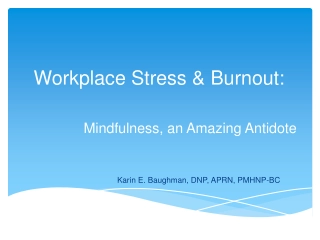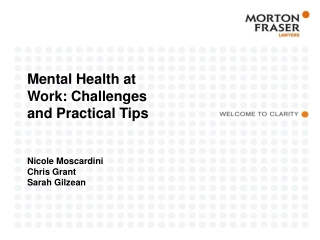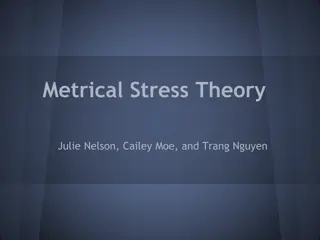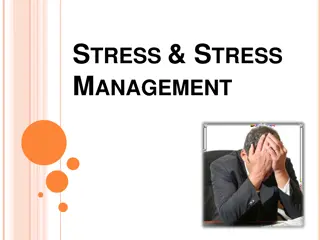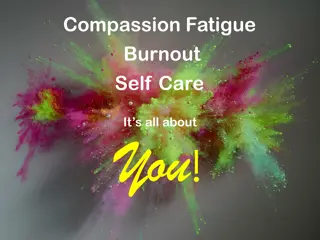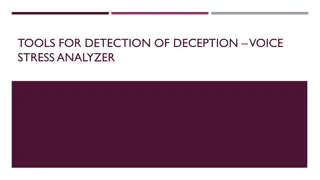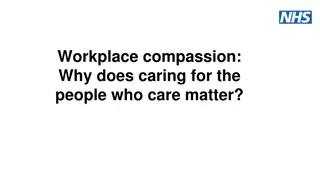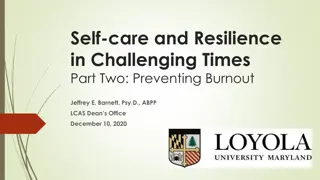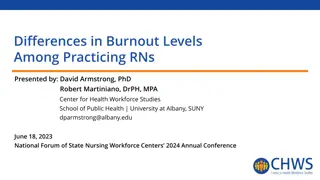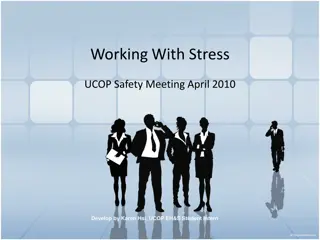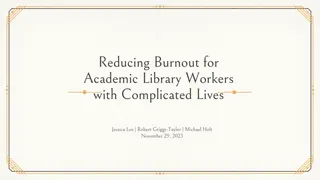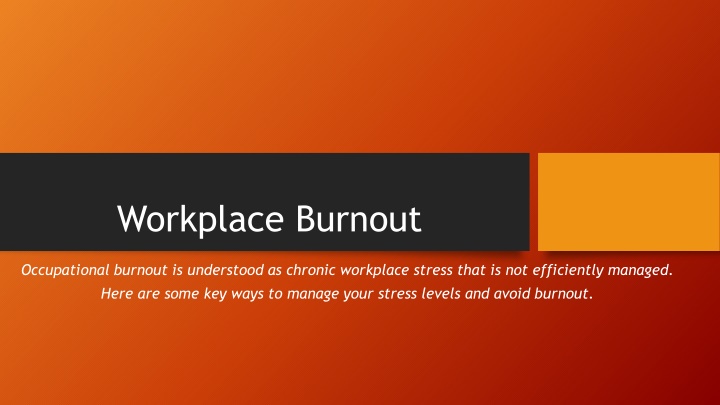
Effective Ways to Manage Workplace Burnout and Avoid Stress
Learn how to prevent workplace burnout and manage stress effectively with structured routines, meditation, humor, and fitness. Discover the signs of burnout and key strategies to maintain mental well-being.
Download Presentation

Please find below an Image/Link to download the presentation.
The content on the website is provided AS IS for your information and personal use only. It may not be sold, licensed, or shared on other websites without obtaining consent from the author. If you encounter any issues during the download, it is possible that the publisher has removed the file from their server.
You are allowed to download the files provided on this website for personal or commercial use, subject to the condition that they are used lawfully. All files are the property of their respective owners.
The content on the website is provided AS IS for your information and personal use only. It may not be sold, licensed, or shared on other websites without obtaining consent from the author.
E N D
Presentation Transcript
Workplace Burnout Occupational burnout is understood as chronic workplace stress that is not efficiently managed. Here are some key ways to manage your stress levels and avoid burnout.
Occupational Phenomenon The World Health Organization (WHO) defines burnout as an occupational phenomenon conceptualized from chronic and unmanaged workplace stress. People are stressed from work, stressed in life, and stressed overall and they don t know how to manage it.
WHO characterizes burnout with three dimensions: 1. Feelings of energy depletion or exhaustion 2. Increased mental distance from one s job, or feelings of negativism or cynicism related to one s job; and 3. Reduced professional efficacy
The three symptoms of burnout are: Exhaustion is the central symptom of burnout. It involves physical, cognitive, and emotional fatigue that makes it difficult to work effectively and feel positive about the work being done. This can stem from work demands that require you to be always on or tasks with intense time pressure, especially if you feel like you lack control over the situation. Cynicism, also called depersonalization, represents an erosion of engagement. It is basically a way of distancing yourself psychologically from your work. Instead of feeling invested in your assignments, projects, colleagues, customers, and other collaborators, you feel detached and negative. Inefficacy refers to feelings of incompetence and a lack of achievement and productivity. It is usually a kind of byproduct of feeling exhausted and cynical because a you are both out of fuel and have lost your connection to work.
Four Ways to Avoid Work Burnout 1. Structure Humans are creatures of habit, and those habits aren t always healthy. Find something structured to deal with stress. routinely unwind train your body to look forward to that unwind. 2. Meditation Meditate to maintain mental clarity and enhance focus. Meditation is proven to reduce symptoms in a number of disorders, including anxiety and depression. Just 10 minutes of meditation a day can rewire your brain. When you meditate, your hormonal levels balance, cardiovascular health improves, and cognitive functions are restored. As a result, your energy rises and you can more easily engage with others and with your work.
Four Ways to Avoid Work Burnout Cont. 3. Comedy and Humor You might have heard before that laughter is a release of tension. When we laugh, we feel good, and this can be especially important when stress takes a physical toll on our bodies (and cause hair to fall out, weight gain, nervous habits, etc.). Laughter also decreases stress hormones and increases immune cells and infection-fighting antibodies, thus improving your resistance to disease. 4. Health and Fitness Exercising regularly has all kinds of physical, mental, and emotional benefits. Exercise can help alleviate stress and create a sense of well-being. It will also help improve your energy levels and productivity throughout the day, and even help you get those zzz s at night.
Self Care, Mindset, Connections Managing stress to avoid burnout means you need to make active changes in your self-care routines, your mindset, and your connections.
Prioritize self-care Work hard to replenish your physical and emotional energy by prioritizing good sleep habits, nutrition, exercise, social connection, and habits. This can include meditating, journaling, and enjoying nature. Logging the hours you spend every day on specific activities can help you identify how much time you are spending doing healthy, or unhealthy, activities.
Shift your perspective Part of the problem of stress originates from the workplace, of course. Try and identify what parts of your situation and work life are truly fixed and which ones you can change. Altering your perspective can help you approach more situations with a positive attitude, gain more control on your to-do list, or curb cynicism. Do you need more positive work-relationships with people? Almost nothing is fixed entirely, and there are ways you can change your situation. You just need to try.
Seek out connections If you surround yourself with people who support you and avoid cynicism and inefficiency, your stress will likely decrease. Find coaches and mentors who can help you identify and activate positive relationships and learning opportunities.
Conclusion Burnout, while not a medical condition, is still a prevalent, and problematic, reality for many people. There are so many contributing factors, but understanding the breakdown of work-related stress, its causes, and its fixes can help you reshape your life so you are staying happy and healthy. Let s be GREAT!

